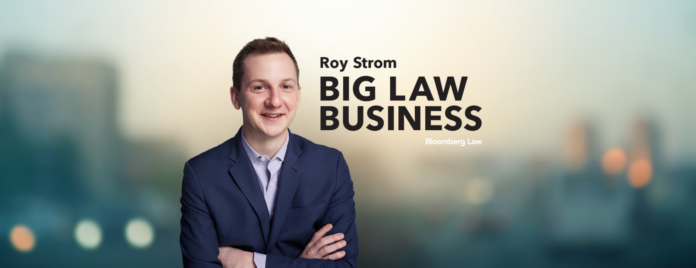Welcome back to the Big Law Business column. This is Roy Strom, and today we will explore how a group of former judges are establishing their own clientele in the realm of Big Law. Make sure to subscribe to receive this column in your Inbox on Thursday mornings.
Abdul Kallon boasts an impressive resume, having served as a federal judge for twelve years. However, since his departure from the bench last year to reenter private practice, Kallon has discovered the necessity of relying on his colleagues at Perkins Coie to thrive in an area he hasn’t engaged with in over a decade: “business development.” Establishing a book of business is a process that requires time, even for someone with experience like a former federal judge.
Kallon mentioned that most of his contacts from his previous tenure in private practice have become irrelevant in this pursuit, with many having retired or shifted roles. His time as a federal judge did not involve marketing, as he deliberately isolated himself from much of the legal community to avoid any perception of bias. Even though he brings valuable expertise to clients’ legal disputes, such as a unique judicial perspective and trial experience, he currently depends largely on his colleagues to include him in cases or introduce him to potential clients.
“It’s essentially starting from scratch,” stated Kallon, who was appointed to the bench by President Obama in 2009. “Building relationships and fostering connections takes time before individuals begin to reach out to you regularly.”
Kallon, aged 54, is part of a trend of former federal judges who have transitioned to Big Law over the past couple of years. These judges were appointed at relatively young ages and are now in their late 40s or mid-50s, indicating they have many years ahead in their careers. This departure from the bench for private practice is expected to become more prevalent, given the trend of appointing younger judges and the pay disparity between federal judges and law firm partners.
For law firms and their partners, having a former federal judge on board undoubtedly enhances credibility. Former judges offer a unique perspective sought after by clients and colleagues. Nevertheless, to maximize their earning potential, these former judges must secure business, as originating work is crucial in private practice.
In interviews with four former judges who recently joined Big Law as partners, the transition process goes beyond just business development. They no longer hold the title of “judge” and have embraced a more entrepreneurial mindset since leaving the bench. As they focus on developing their practices, these former judges are appreciative of their colleagues who have assisted them in connecting with clients and involving them in cases early on.
Gary Feinerman, who joined Latham & Watkins last year after resigning from the Northern District of Illinois, has already appeared in cases on behalf of major clients such as Meta Platforms Inc., Temu, and Instacart. He acknowledged the importance of being present, connecting with others, and collaborating with colleagues to contribute to projects.
Gregg Costa and George Hazel, now partners at Gibson Dunn, recently launched a podcast called “A View From the Bench,” discussing their professional journeys, return to private practice, and the legal landscape in America. They have already been involved in cases and are gradually developing their own client networks.
This shift from the bench to private practice has required a change in mindset for these former judges. They now need to actively promote themselves and seek out work from clients, a task that initially proved to be challenging but vital for their success.
